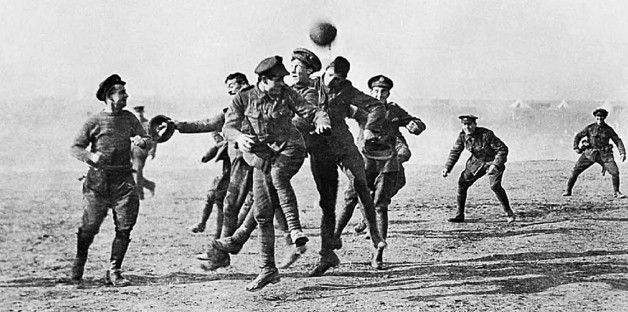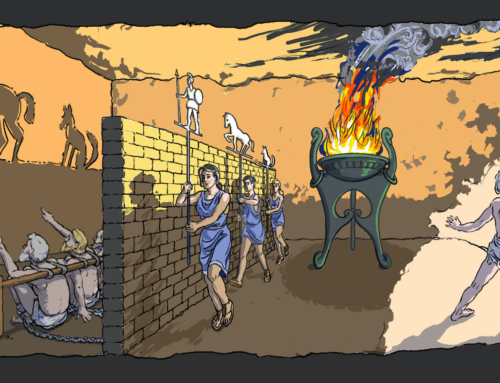Right now is a great time of year to be a soccer fan. The European leagues are coming to a close, the MLS is just starting its season, the UEFA Champions League final is a week away, and the UEFA Euro 2012 is about a month away. That is a lot of soccer to digest in a short amount of time. All of this top-flight soccer prompts me to reflect on the beauty of the sport, which, after all, is known across the world as “the beautiful game.”
As with most sports, there are many aspects of soccer that parallel the spiritual or moral life. The fast pace and constantly evolving nature of the game reflect life itself. Depending on the situation at hand, a soccer player must be able to play both offense and defense. He may specialize in one or the other, of course, but he must be versatile enough to play either. He must respond to how the match evolves, and, although the club has a strategy that it plays by (whether offensive or defensive), it is up to the players to take this strategy and implement it with each pass, run, and shot. The player has to be prudential in his judgments. He has to be able to read what is happening on the pitch, what kind of defense the opposing team is playing, where his teammates are, etc. In other words, he must use his practical reason to implement properly the coach’s game strategy in the here and now.
It is somewhat similar for the virtuous man. A virtuous man reads the circumstances of his life and acts accordingly. He knows when mercy or justice is called for, whether it is proper to act or to be patient and wait, and so on. Like the soccer player, he is committed to practice. He strives to live a life of virtue. The skillful soccer player is constantly practicing and perfecting the mechanics of passing and shooting, and the virtuous man is always exercising the virtues of prudence, justice, fortitude, and temperance; of faith, hope, and love.
Following Aristotle, St. Thomas Aquinas assigns to games the virtue of eutrapelia. This is the virtue of pleasantness or playfulness. St. Thomas explains that, just as the body needs rest when it is weary, so too does the soul when it becomes overburdened. And, like the body, the soul takes rest in a kind of pleasure, which we call “play.” As St. Thomas says, “Now such like words or deeds wherein nothing further is sought than the soul’s delight are called playful or humorous.” Of course, these words or deeds are only virtuous if they accord with reason. Playfulness has its proper time, place, and mode. But insofar as we play reasonably, we can speak of a virtue of playfulness and, therefore, a virtue related to games. Through games we restore the strength of our souls, so as to be more fervent in pursuing higher ends, such as contemplation.
As this academic year comes to a close, I look forward to the opportunity of exercising the virtue of eutrapelia. For me, this will consist either in playing “the beautiful game” myself or in watching it played by some of the best clubs in the world. After finals week, my weary intellect is certainly going to need it.
✠
Image: Germans and Allies Play Soccer, Christmas Truce of 1914







